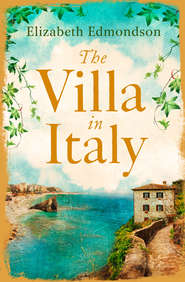По всем вопросам обращайтесь на: info@litportal.ru
(©) 2003-2024.
✖
The Frozen Lake: A gripping novel of family and wartime secrets
Настройки чтения
Размер шрифта
Высота строк
Поля
There has not been a frost such as this since the winter of 1920/1921, and the news that the great lakes of the north are freezing over has reached not merely our local papers, but the columns of the great London newspapers, sending accounts of the icy weather around the globe. As northerners sharpen their skates and watch the clear blue skies and starry nights for any sign of an unwelcome break in the weather, exiles in England and abroad are remembering frozen days of long ago, closing their eyes to grey town streets as they dream of dazzling winter skies, of air unsullied by smoke and soot and fumes. In their minds, they are once again skating from one end of the lake to the other beneath the towering fells, sharp blades hissing on dazzling ice, ears and fingers tingling, spirits filled with a wild joy.
Homecomings (#ulink_d4faab79-9af2-5ae7-85e5-84e09cb17967)
ONE (#ulink_1550233d-27a7-5c07-addb-fe27692c91bb)
London, Chelsea
Why didn’t she go north for Christmas?
Alix Richardson broke two eggs into a bowl and stirred them with a fork. Cecy Grindley’s words hadn’t been critical or nosy, she had just asked a simple and natural question. Even though her childhood friend was aware of Alix’s sentiments towards her grandmother, she didn’t see that as a good reason for staying away from Wyncrag.
Cecy was probably right. Alix stared down at the yellow mixture without enthusiasm. She didn’t care much for omelettes, but seemed to be eating a lot of them.
Food for a solitary life.
Other people spent Christmas with their families. It was customary, even if they regretted it every time, and every year swore, never again. Those who had no real family life always imagined such gatherings as the acme of happiness and warmth, although the truth was that they were just as likely to turn out disastrously: family rows, old grudges dug up to fuel resentment and animosity, lost tempers and frayed nerves exposed over roast meats and bumpers of brandy.
Alix lit the gas under the omelette pan and watched the knob of butter dissolve and sizzle. Christmas at Wyncrag wasn’t like that. Grandmama’s eyebrows might be raised, but never voices. Temper, anger and arguments had no place in that household. Nursery scenes were kept to the nursery; once outside those protective doors, good manners and fear of Grandmama kept the house serene and orderly. On the surface, at any rate.
She poured the beaten eggs into the butter and tilted the pan as the omelette began to cook. There had been a time, once, when noise and laughter and happy voices had been heard at Wyncrag. When she and Edwin and Isabel and their parents had been together as a family.
In her mind’s eye, Alix could see her sister coming home to Wyncrag from a day’s shooting, before the frost had set in and the snow had swept down from the fells. Even at fourteen, Isabel had been a first-rate shot, unlike the rest of her family, who might take out a gun from time to time, but shared none of their neighbours’ passion for the sport.
She could remember being on the ice with Edwin, her twin, that December, sliding and skating and tobogganing.
The holiday had begun with the house ringing to children’s excited shrieks and the sound of their running feet – and had ended with cold, half-overheard words. Their last Christmas together.
She slid the omelette on to a plate taken from the rack over the stove and carried it to the table in the other room. She poured herself a glass of wine and put a forkful of omelette into her mouth, quite unaware of its taste.
There had been those conversations that ended abruptly when she or Edwin entered a room. She remembered, with sudden unnerving clarity, her mother for once raising her voice to Grandmama and Grandmama’s vicious, indecipherable replies, delivered in a hissing undertone.
She drank some of the wine – it could have been vinegar or orangeade. Isabel was ill, the twins were told. They didn’t say what was wrong with her, something infectious, so that she had been shut away in a distant corner of the house. Alix recalled quite vividly, looking through the eyes of forgotten childhood, coming into the hall to find Rokeby distractedly taking down the Christmas decorations. Aunt Trudie was there, too, tearing the candles and ornaments from the tree and piling them higgledy-piggledy in a cracker box, instead of wrapping each one in tissue paper and laying it in the wooden chest kept for the purpose.
Alix pushed the rest of her omelette to one side of her plate. Hotpot, it was a long time since she’d eaten hotpot. People in London knew nothing about hotpots. Or porridge at breakfast, with brown sugar and thick cream from the farm. Grandpapa ate his in the Scots way, with salt, but for her it was sugar and cream every time. Chocolate pudding. If she went home, Cook would make her one of her ambrosial chocolate puddings with the hot chocolate sauce that was famous throughout the lakes, the recipe for which was kept under lock and key.
Alix got up and carried plate and glass into the kitchen. She put them by the sink; her char would do the washing-up in the morning. She made coffee, watching with unseeing eyes as the hot liquid bubbled to the top of the pot.
She had cut her ties with Wyncrag, gone off to make a life of her own. Did the traditions mean anything to her? Did she yearn for carols and plum pudding and parcels under the tree?
No.
But she did yearn for the lake and the hills and for the feel of icy air on glowing cheeks, and she longed once again to be flying over the ice under pure, cold blue skies. And for hotpot and chocolate pudding. Not to mention the delicious game there always was at this time of the year. Bread, too, you couldn’t seem to buy proper bread in London. At Wyncrag, the baker’s boy still delivered the bread every morning, a basket of loaves wrapped in a cloth, miraculously warm.
Was there a risk of Grandmama dragging her back under her thumb if she went back? Surely not, not now.
If she went to Wyncrag for Christmas – it was only a few days, after all – she could spend hours and hours with Edwin. Talking and walking and skating and laughing, just as they used to. She’d avoided him since she came south, although she knew he came several times a year to London. She missed him, but their very closeness made her wary of seeing much of him. He knew her too well, and she felt that his understanding touched raw nerves that were best left alone. She had chosen to leave the north and her family, while his decision had been to remain. It was easier for him. Grandmama didn’t rule him with the ferocity that she applied to her female descendants, and so he could have his own place in Lowfell and keep a small flat in London, privileges that would never be granted to her.
Yet now, suddenly, she longed to see him again. And there was Perdita – what a difference between twelve and fifteen; did she want her sister to grow up a stranger to her?
She saw Grandpapa, when he came to London, two or three times a year. Strong-minded she might have become, but she wasn’t heartless. He would write, giving her plenty of notice, and then take her to dinner at one of his favourite restaurants, dark, peaceful places, where the waiters moved at a gentle pace and the food was substantial, beautifully cooked and comforting.
In the spring, they had gone to Germany for a week together. He had spent a good deal of time in Germany as a young man and had studied there. He wanted his children and his grandchildren to speak the language, and had employed German governesses and tutors to teach them. He shook his head over the new Germany, the sour fruit of Versailles, he called it. Alix had enjoyed herself, tasting the bizarre delights of Berlin in the company of young relations of Grandpapa’s friends. She hoped he had no notion of how different her contemporaries were from the serious, responsible citizens he knew so well, although Grandpapa had always had the knack of ignoring what he couldn’t change. She loved him, but knew that her world and its ways were a closed book to him – thank God for it. He would be so pleased to see her if she went back to Wyncrag this year. She had quickly read and torn up the wistful letter that came from him, as it did towards the end of every year, enclosing a handsome cheque and saying how much he missed seeing her at Christmas.
It was stupid. It was the time of year, the tinsel tiresomeness of it all, the catchy sentimentality of the season.
Of course she wouldn’t go north. It was a stupid idea.
And an idea that would never have occurred to her if she hadn’t run into Cecy while Christmas shopping in Harrods. Cecy, a Grindley of Grindley Hall, their nearest neighbours in Westmoreland, and one of her oldest friends.
She had been more pleased to see Cecy than she would have believed possible, her familiar smile, eyes merry behind round spectacles, a weight of fair hair trying to escape from a bun. Cecy belonged to the time before she’d plunged into the restless, messy life of her recent past. Then, she’d scorned friendship; now, she was grateful that there was any aspect of human relationship left that she hadn’t mocked and trampled on.
These last weeks, she thought, looking back over the bleak days, had made her long for the warmth of simple, genuine friendship. Friendship, not the mindless desire not to be alone for a moment, day or night. Her address book, her one-time bible, crammed full of names and telephone numbers of people she never wanted to see or hear from again, was shut up in her desk.
She still had no idea why she had woken up one morning, earlier than usual, hung-over, hot, uncomfortable, and had conceived an instant, blinding hatred for the man sprawled beside her, one masculine leg hanging over the side of the bed. He was no worse than the others, less so perhaps; inoffensive, with some charm about him, able to take away the loneliness for a few moments of passion and rob the night of its desolation.
She suddenly wanted none of him. She had yanked at his leg, thrown his clothes at him, driven him from the flat. Home from work that evening, she had taken the telephone off the hook, unwired the door bell, and spent the whole evening soaking in the bath and reading the children’s books she had bought at lunchtime: The Phoenix and the Carpet and Alice’s Adventures in Wonderland and What Katy Did.
She had expected the mood to pass, that in a little while she would want to be back among her set – but it hadn’t happened. The liveliness seemed brittle, their vivacity aimless and empty, the round of parties and nightclubs pointless, the sophistication superficial and unsatisfactory. She was like a snake that had sloughed its skin, and was waiting to see what new patterns it might find its scales forming themselves into. She bathed a lot, drank very little, refused all invitations, fled round corners or hid in shop doorways to avoid the acquaintances who’d been her companions for months past.
And now there was Cecy, smiling at her in the old way. She felt guilty at how she had let her old friends drop. All very well to cut herself off from her family, but Cecy wasn’t family. Alix had known she was in London, a medical student at one of the big hospitals, but had made no effort to meet up with her.
She suggested a film.
‘There’s the new Cary Grant at the Odeon. With Bettina Brand. Queues round the block, I should think.’
‘Never mind,’ Cecy said. ‘Let’s brave the queue, and go.’
It was a good programme, with a cartoon before the Pathé News and the main feature. They found the cartoon very funny, although the light-hearted mood was rather dispelled by the grainy news pictures of a rally in Berlin.
‘Good marchers, you’ve got to say that for them,’ said a woman in the row behind.
‘Some of that discipline would do all the layabouts in this country a bit of good.’
‘That Hitler’s barking: shouting and yelling and shooting his arm into the air all the time. And his moustache, did you ever see anything so silly?’
‘He makes my flesh creep, him and those others going about in uniforms all the time.’
‘Sssh.’
The scenes of Herr Hitler addressing a rally gave way to ranks of German beauties, bursting with health at a Strength Through Joy camp, waving scarves in synchronised patterns, and then to a shot of members of Hitler Youth relaxing with outsize tankards of beer on benches at a heavily timbered country inn, with snow-capped mountains as a backdrop.
‘At last,’ Cecy said, settling herself more comfortably in her seat as the strains of organ music faded away, and the curtains swished open again to show MGM’s roaring lion.
Late to bed, and cursed with wakefulness, Alix finally fell into a restless sleep in the early hours of the morning. As a result, she overslept and only just got to her office on time, signing her name in the book at one minute to nine. The man on duty at the reception desk scowled at her, he’d hoped to catch her out for once. ‘Thank you, Mr Milsom,’ she said brightly. Avoiding the minute and ancient lift in the centre of the stairwell, she started up the three flights of stairs to her office in the copywriting department.
Although office was a generous word for a cubby-hole carved out of a box room, with barely enough room for a small desk, a chair and a wobbly bookshelf containing out of date directories (cunningly dumped there by other members of staff), a thesaurus (essential, always tracked down and recovered within a short time of it being purloined from the shelf), a dictionary (1912 edition, the more modern one having been borrowed by the copy department and never returned), an aged copy of Gray’s Anatomy (invaluable for pharmaceutical clients and for the dull but profitable remedies-for-all-ailments products), last year’s Wisden (a mystery, that one), dictionaries of quotations and proverbs (almost as closely guarded as the Roget) and several discarded trashy novels, borrowed by members of the typing pool on dull days and kept there as being the only available shelf space.
A brisk morning’s work with the EasiTums account – For the liverish feeling that takes the zest out of life – saw her desk clear of immediate tasks, and at ten to one, she was in the telephone box on the corner of the street.









